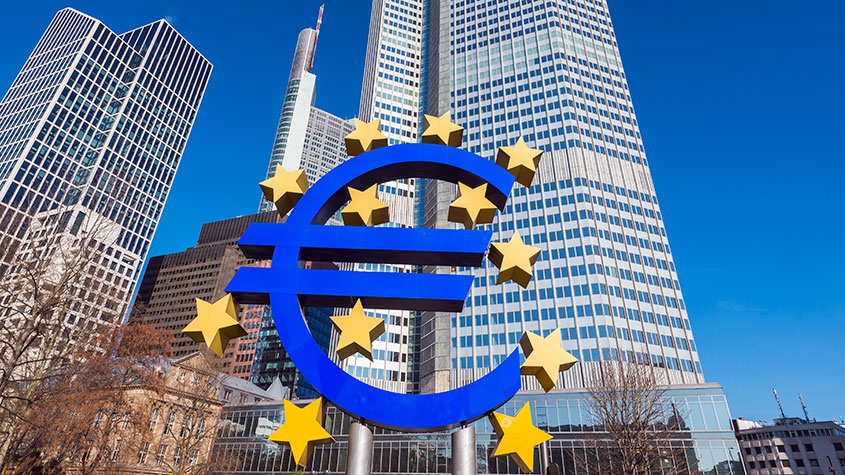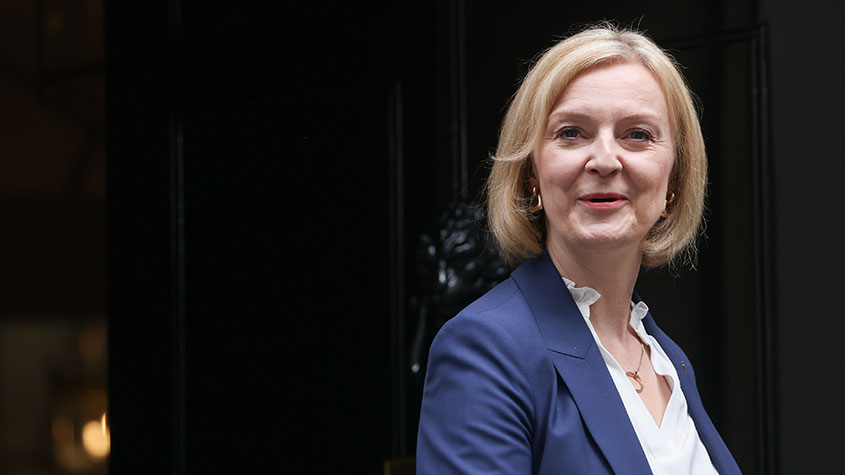Will the British public support a “Norwegian solution” for Brexit?
Many experts think that a Norwegian-style deal with the EU would be the least worst version of Brexit. But would the public support that? Matthew Partridge investigates.

Get the latest financial news, insights and expert analysis from our award-winning MoneyWeek team, to help you understand what really matters when it comes to your finances.
You are now subscribed
Your newsletter sign-up was successful
Want to add more newsletters?

Many experts think that a Norwegian-style deal with the EU would be the least worst version of Brexit. Under this arrangement the UK would leave the EU but join the European Economic Area (EEA). The advantages are that this would guarantee access to the single market, cut our net contribution to the EU budget while allowing the UK to take control of agriculture and fisheries (areas which most people accept need serious reform). It would also allow the UK to cut trade deals with third countries.
Of course, we would still have to obey most EU laws (while having little control over them), and accept freedom of movement. Nonetheless on paper at least this looks like a way to respect the wishes of the majority, while minimising the harm and disruption to the economy. The big question is whether such a deal will be palatable to the British public. To answer that question I asked Anthony Wells, the director of political and social research at YouGov, and highly respected online pollster. YouGov's eve-of-election forecast of a very narrow Remain victory, although incorrect, was closer to reality than the majority of polls.
Wells agrees that on paper that a majority of the population would support EEA membership. Indeed, during the referendum, polls found that this option had the hypothetical support of around 60% of the public. Even though a recent poll conducted a few weeks ago found the public much more evenly split, less than a third the population supported a complete break with no trade agreement. Overall, Wells is confident that, "on paper, most of the British public would support a Norway deal". This is because "you would only need to convince an additional two percent of the population on top of the 48% who voted to Remain".
Try 6 free issues of MoneyWeek today
Get unparalleled financial insight, analysis and expert opinion you can profit from.

Sign up to Money Morning
Don't miss the latest investment and personal finances news, market analysis, plus money-saving tips with our free twice-daily newsletter
Don't miss the latest investment and personal finances news, market analysis, plus money-saving tips with our free twice-daily newsletter
However, in practice such a deal would be hard for Theresa May to sell to her party, as it "would be seen as a betrayal". Indeed, his gut feeling is that most of the Conservative Party, especially in parliament, "oppose anything that could be seen as a fudge" (exit polls suggest that Conservative Party members voted to Leave). If she wants to guarantee support for continued access to the single market "she would need to move very quickly to take advantage of her honeymoon", so the fact that "she has shied away from a quick exit would make things a lot harder if she wants to go down that route in the future".
However, Wells notes that "public opinion is not set in stone". Indeed, if there is a recession, "public attitudes could swing much more strongly in favour of remaining in Europe". Indeed, he notes that it would be "almost impossible" to predict the outcome of a second vote (whether on the EEA or even full membership) in advance. The classic case was the 2011 referendum on the alternative vote, which in his view ended up boiling down to the question, "do you want to give Nick Clegg a slap?"
Incidentally, Wells thinks that Cameron's big mistake was to "overplay the economic arguments against leaving", which were successfully dismissed by the Leave campaign as "Project Fear". Although they were supported by a lot of evidence, the way in which they were delivered turned "a potentially winning hand into a liability". Of course, Wells admits that, "a wholly positive campaign wouldn't have worked either", given Britain's lack of enthusiasm about the EU. So it's fair to say that the now former PM faced a difficult balancing task, which he handled badly.
A Brexit-related economic downturn could also shift sentiment north of the border. After the vote, Wells expected renewed demands for Scotland to leave the UK, since it voted overwhelmingly to stay in the EU. To his surprise this hasn't been reflected in his company's polling on the topic, which has found "no move toward Scottish independence so far". However, Wells warns that if the economy worsens then this could quickly change. Similarly, if oil prices rebound from around $50/barrel, then the Scots could become much more open towards leaving Britain.
Finally, Wells notes that the European public is generally hostile to a deal, especially one that doesn't involve freedom of movement. Indeed, they clearly think, "that Britain doesn't deserve any special favours". However, the treatment of the UK may not be a major factor in next year's elections in France and Germany, giving Brussels some leeway to make compromises. Of course, whether it wants to is another question entirely.
Get the latest financial news, insights and expert analysis from our award-winning MoneyWeek team, to help you understand what really matters when it comes to your finances.

-
 The rare books which are selling for thousands
The rare books which are selling for thousandsRare books have been given a boost by the film Wuthering Heights. So how much are they really selling for?
-
 Pensions vs savings accounts: which is better for building wealth?
Pensions vs savings accounts: which is better for building wealth?Savings accounts with inflation-beating interest rates are a safe place to grow your money, but could you get bigger gains by putting your cash into a pension?
-
 No peace dividend in Trump's Ukraine plan
No peace dividend in Trump's Ukraine planOpinion An end to fighting in Ukraine will hurt defence shares in the short term, but the boom is likely to continue given US isolationism, says Matthew Lynn
-
 Europe’s new single stock market is no panacea
Europe’s new single stock market is no panaceaOpinion It is hard to see how a single European stock exchange will fix anything. Friedrich Merz is trying his hand at a failed strategy, says Matthew Lynn
-
 Britain’s inflation problem
Britain’s inflation problemInflation in the UK appears to be remaining higher for longer when compared with similar rich countries. Why? And when can we expect a return to normal? Simon Wilson reports.
-
 Eurozone inflation hits 10.7% in October
Eurozone inflation hits 10.7% in OctoberNews Inflation across the eurozone hit 10.7% in October. What does it mean for your money?
-
 A forgotten lesson on the dangers of energy price caps
A forgotten lesson on the dangers of energy price capsAnalysis Liz Truss’s proposed energy price cap is an ambitious gamble. But a similar programme in Spain ended up being a fiasco, say Max King and Tom Murley. Here, they explain why Truss’s plan could be doomed to failure.
-
 Don't be scared by economic forecasting
Don't be scared by economic forecastingEditor's letter The Bank of England warned last week the UK will tip into recession this year. But predictions about stockmarkets, earnings or macroeconomic trends can be safely ignored, says Andrew Van Sickle.
-
 The wolf returns to the eurozone’s door
The wolf returns to the eurozone’s doorEditor's letter The eurozone’s intrinsic flaws have been exposed again as investors’ fears about Italy’s ability to pay its debt sends bond yields soaring.
-
 Eurozone economy heads for paralysis
Eurozone economy heads for paralysisNews Record high energy prices, the threat of recession in Germany and squabbling in Italy's government has left the eurozone fighting fires on all fronts.